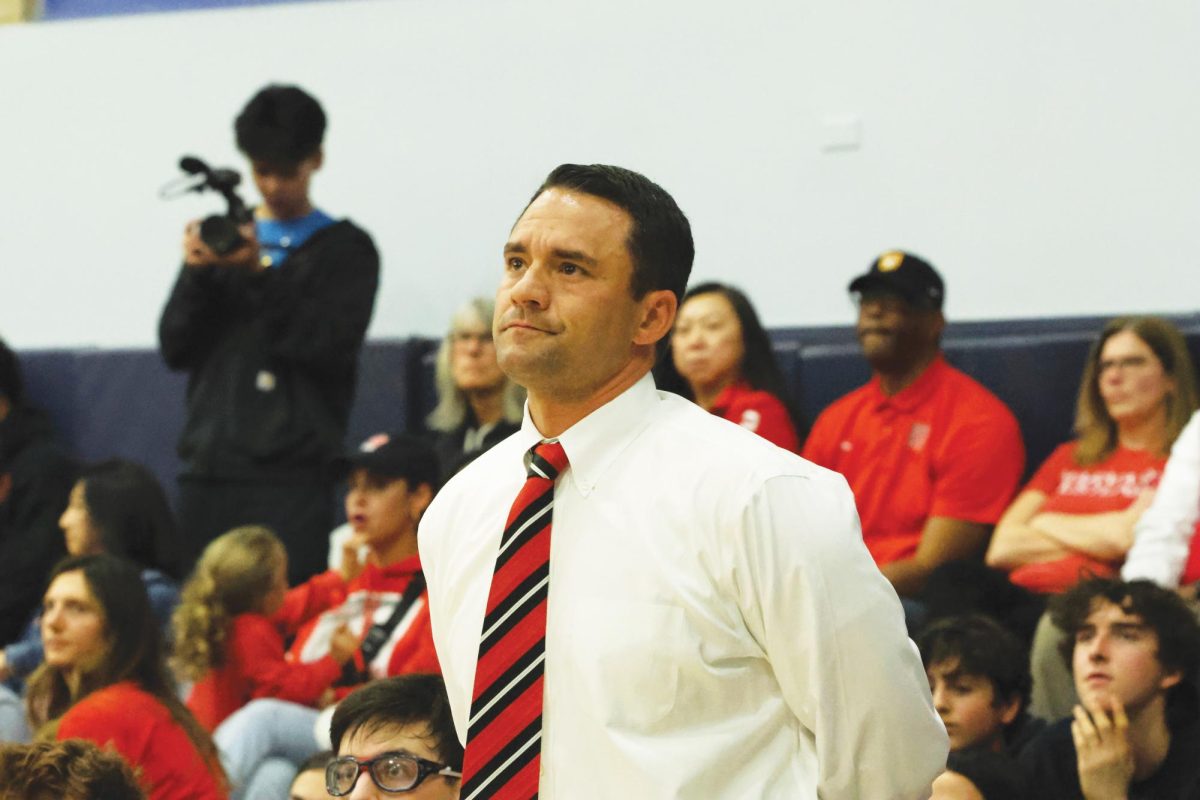By Sonya Mitchell
Kerry Kuwata â08 thought her junior year was no more stressful than that of her classmates. She was taking one AP and one honors course, and playing center mid-field on a varsity and club soccer team. She came to school worn out and exhausted but her friends all seemed to be going through the same thing. She just drank more coffee in effort to fuel up.
But when she found herself falling asleep in class even on days after she had gotten a good nightâs sleep, she knew something was wrong.
 At the time, she did not realize that she would end up missing four months of her junior year. At first Kuwata missed school only a few days a week but tried to attend as often as she could.
When she would attend, she would get home and go straight to bed, and so she still ended up falling behind. She consulted her doctor, who sent her to an infectious disease specialist.
The specialist diagnosed her with the Epstein-Barr virus that can result from untreated mononucleosis.
Her levels of this virus were so extreme that she was diagnosed with chronic fatigue, severe chronic mental and physical exhaustion.
This disease is one that plagues a person throughout their life, yet it can be active or inactive.
âA lot of people with the same disease would not have to miss as much school as I did,â she said. She was granted official medical leave. To get this, she had to have a meeting with Head of Upper School Harry Salamandra and her dean Jason Honsel. Her doctor was not present, but had written up numerous forms.
âI originally wanted to go to school part-time,â Kuwata said. âBut if I was going to be missing school they said that I would have to miss all of it.â
During this time, the school supported her leave. Kuwata hoped to return to school in the fall as a senior, so she would not have to repeat junior year, which the school tried to help her achieve by adjusting the workload. Â
âThe school let my teachers know of my leave and they then decided how they would handle it,â Kuwata said. For most classes, her finals were the only tests she had to take and counted for her entire junior grade for each class.
The exceptions were for Honors English, where she had to complete all of the essays and AP Environmental Science, for which she only received half credit. Keeping up with the work was difficult as teachers do not make house calls.
âFor English, I would read the books on my own and my teacher would send me the essay prompts,â Kuwata said.
âFor history, my whole grade rested on one research paper, and for the rest of my classes I had a tutor so I could do well on the finals.â
Although taking one test for the entire year might sound like a dream to many students, Kuwata felt added pressure.
âI had to keep up with the work and teach myself in order to do well on the finals since they counted for even more than they usually do,â Kuwata said. âAlthough I was thankful that I was excused from some of the class work, this put a lot of pressure on me to do well on the final because one test would determine my junior year grade for each class.â
Doing work was especially difficult for Kuwata because of how sick she felt. Kuwata did all she could to improve her conditions.
âDuring those months at home, I slept most of the day,â she said.
Her days became routine. She would go to sleep at 7 p.m. and wake up at noon or 1 p.m. On most days, it would be her parents who had to wake her so she could get some work done. She would not change out of her pajamas because âthere was no point.â
âI wouldnât really let myself watch TV because I knew I would get into a bad habit and become a couch potato,â Kuwata said.
Kuwata had to make another drastic change: she had to quit both club and school soccer.
âI had to give up my spot on an amazing team,â she said. âI still donât think it has really hit me yet.Soccer has been such a big part of my life since I can remember. I mean, it was my life.â
Before her sickness, Kuwata spent about 16 hours a week playing soccer.
Additionally, she had already been contacted by universities who were recruiting her.
During her sickness, Kuwata went out of her house only twice, including to attend prom.
âI really missed my friends,â she said. âThey would come to visit me and were very supportive.â
âIt was one of the hardest things Iâve ever had to do,â she said. âBut I fought through it and am now so much stronger, both physically and mentally.â




































